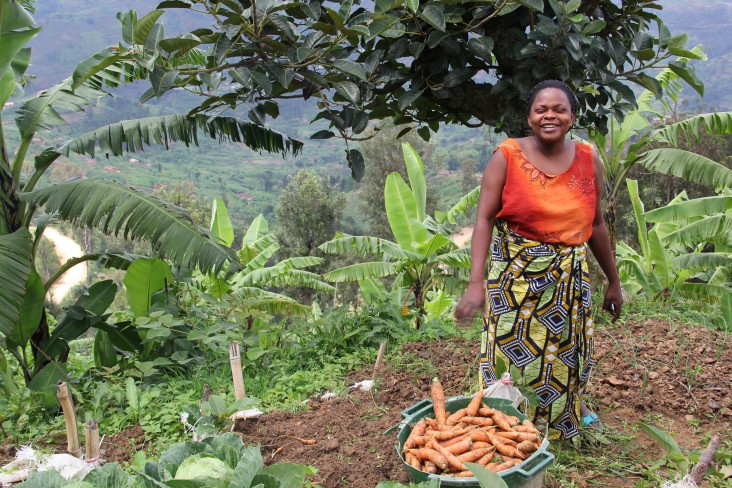
Dec. 2014—Every year from Nov. 25 to Dec. 10, the world mobilizes through the 16 Days of Activism to End Gender-Based Violence campaign to bring attention to countries like Rwanda, where nearly 56 percent of women report experiencing physical or sexual violence in their lifetime.
A number of Rwandan facilities are now providing a safe location where those affected by gender-based violence can receive medical, psycho-social and legal support. In 2013, USAID’s Rwanda Family Health Project, in collaboration with the Ministry of Health, established the Isange One Stop Center in Western Rwanda to help address the high rate of violence and give victims a place to seek refuge and support. The project outfitted the center with equipment and strengthened the skills of 20 health care providers within the center and 36 providers outside the center who can refer victims from neighboring community health centers.
The One Stop Centers are important resources and tools for combatting gender-based violence in Rwanda, but they often are reactive, usually reaching the victim after the violence has already occurred. Recognizing the need to prevent violence from occurring in the first place, the project trains health care providers in gender-based violence prevention and management so they can facilitate identification, referral and counseling for victims.
These health care providers in turn have trained over 1,440 community health workers throughout the district so they could return to their villages with case management skills focused on gender-based violence prevention and response. Further, to raise local awareness and secure sustainable support, the Isange One Stop Center and the project hosted a community meeting in spring 2014 with nearly 150 participants made up of district authorities and hospital staff.
Christine Kayitesi, a newly trained community health worker affiliated with the Karumbi Health Center in Rutsiro, is excited to use her new skills to fight gender-based violence. She is enthusiastic about her ability to refer patients for help close to home at the Isange One Stop Center. As the point person in her community, she has hosted a number of inquisitive neighbors in her home, where they can talk freely about the violence they are experiencing or seeing in their community.
“After having the training on gender-based violence, we learned about the different kinds of gender-based violence, and, after, we came back home and started to mobilize the community through meetings,” said Kayitesi. “We explained what gender-based violence was and a person’s rights. Now, we are seeing less gender-based violence in Rutsiro because people know about it and the related laws. When we meet a victim of gender-based violence, we are able to immediately refer them to the local authorities and the One Stop Center at Murunda District Hospital.”
Kayitesi explained that reasons for gender-based violence include poverty and the economic disparity that exists between men and women in the rural areas. Women are beginning to understand their rights more and more in Rwanda, and, at times, this creates tension and violence in the household when they assert their desire to do things like start businesses or to make decisions about the money they earn.
“Before [the Isange One Stop Center] there was a lot of GBV [gender-based violence] in Rutsiro, but now people know their rights and can report it. Once a person is aware of their rights, it is easier to prevent GBV,” she added.
The Rwanda Family Health Project, which began in 2012 and ends in 2017, is designed to improve the capacity of Rwandan health institutions to deliver high-quality, comprehensive services. To date, the project has reached over 169,000 people with GBV prevention messages and has supported the care and support of over 4,450 GBV victims, both male and female.
LINKS
Follow @USAIDRwanda, on Facebook, on Flickr







Comment
Make a general inquiry or suggest an improvement.